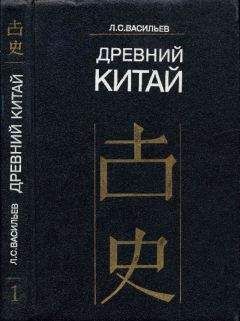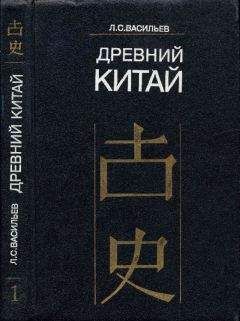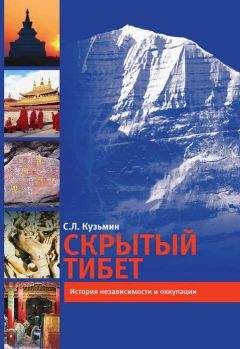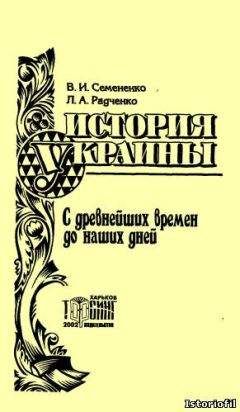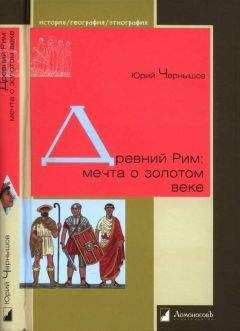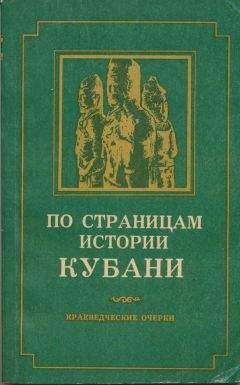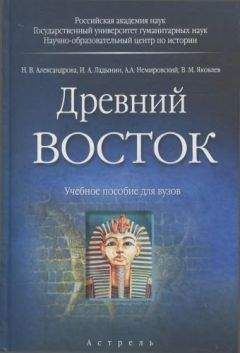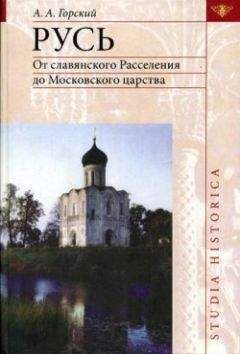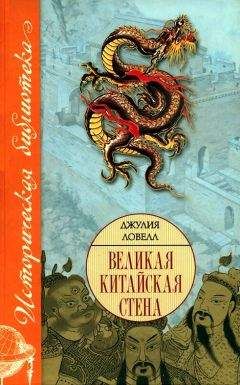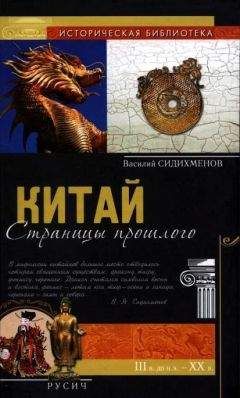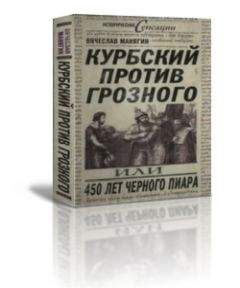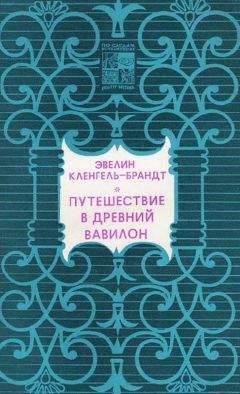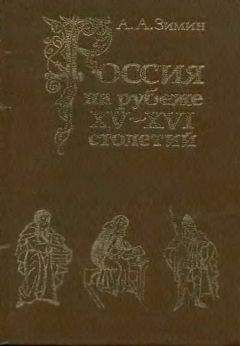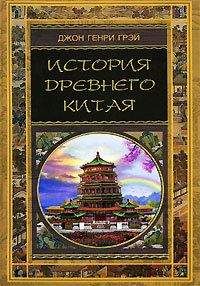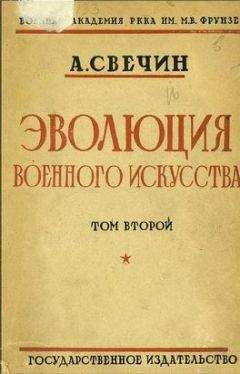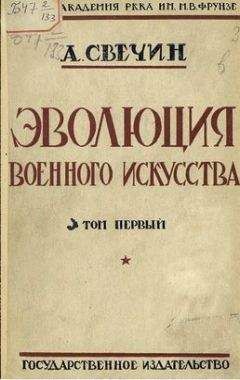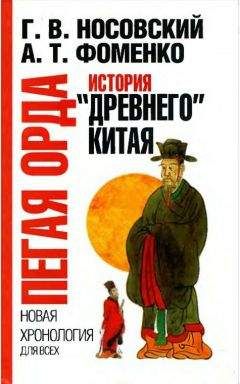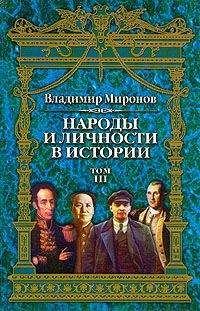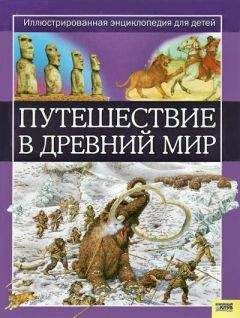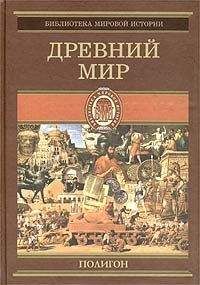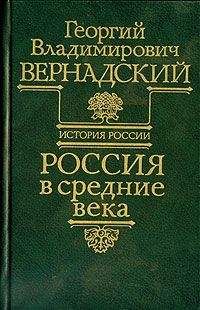Леонид Васильев - Древний Китай. Том 3: Период Чжаньго (V—III вв. до н.э.)
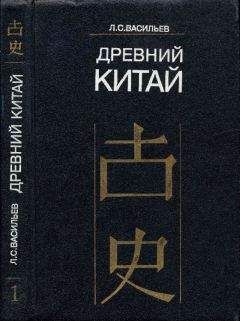
Скачивание начинается... Если скачивание не началось автоматически, пожалуйста нажмите на эту ссылку.
Жалоба
Напишите нам, и мы в срочном порядке примем меры.
Описание книги "Древний Китай. Том 3: Период Чжаньго (V—III вв. до н.э.)"
Описание и краткое содержание "Древний Китай. Том 3: Период Чжаньго (V—III вв. до н.э.)" читать бесплатно онлайн.
Заключительный том трехтомника «Древний Китай» посвящен последнему периоду существования династии Чжоу, так называемой эпохе Чжаньго («Сражающиеся царства»). Рассказывается о политической истории этого времени (V–III вв. до н. э.), об искусстве дипломатии, о реформах, способствовавших усилению прежде отсталого царства Цинь, которое, одолев соперников, основало первую в истории Китая империю. Преимущественное внимание в томе уделено переменам в характере и облике древнекитайского общества, прежде всего процессу его радикальной дефеодализации, а также развитию главных школ древнекитайской мысли, которые, особенно конфуцианство, легли в основу успешного развития китайской цивилизации вплоть до наших дней.
One more important circumstance must be noted. During the Ch'unch'iu period, leaders of the pa rank (they were topmost among the chuhou rulers) used to prevent the stronger states from crushing the weaker ones, which was no longer the case. Having broken the fetters of feudal norms, rulers of the Chankuo period became ftill-fledged sovereigns of centralized states. Since their expansionist drive was now totally unchecked, they started pressing and crushing their neighbors, intending to weaken their armed forces and to annex desirable pieces of land. Free from feudal conflicts and internal strife, they were sometimes prepared to go to the stake for achieving their single aim: to defeat their equals in that struggle.
Instead of the tafu warriors and the ch'ing officials of the past, rulers of the Chankuo kingdoms had big armies and capable generals at their disposal. The latter were promoted for their personal merits and sometimes came from the ranks of the worthiest shih. Rulers consolidated their administrative apparatus by manning it with intelligent and capable shih. Unlike the feudal apparatus, it included those who — on account of having necessary qualifications — were capable of managing state affairs and who could be hired and dismissed like ordinary office workers. These officials of new kind were heading up new, gradually forming administrative-territorial structures that consisted of administrative units, not of feudal landed domains as earlier. Aristocrats continued to exist only as retainers and advisers of rulers and normally had to compete with clever administrators of the shih class, who sometimes hailed from different kingdoms. Who were the shih selected by rulers for this job? How, generally speaking, worked this new administrative class and what ideas formed its ideological basis?
Volume III pays attention to the exponents of a number of schools that competed with Confucianism, offering their own concepts of government. Mo-tzu was one of the earliest among them. He was born the year that Confucius died. He received his instruction from one of Confucius' disciples, and died in the late 5th century B.C. Having borrowed many ideas from Confucianism, Mo-tzu nonetheless differed with the Master on several vital points. Mo-tzu's primary concern was the creation of a society of equals. Loving one's parents and looking after one's children is not enough. One must love all people and look after them. Then the bonds of friendship would bind all the people together, and every man would always help his neighbor. Denouncing ancestor worship and hsiao (filial piety), Mo-tzu maintained that society must be free from both poverty and opulence, and that entertainment and exquisite pursuits available only to the chosen few are quite superfluous. Plain food, humble clothes, a small house and a simple tomb with a wooden coffin buried without elaborate and expensive funeral rites — this should suffice everyone.
Mo-tzu's fervent moralization is perfectly understandable, given the conditions of the defeudalized Chinese society, in which the pushy and greedy nouveaux riches (hsiao-jen) were eager to supplant the aristocrats who were quickly becoming history. The idea of taking property from the rich and distributing it evenly among the poor looked very attractive. So banal nowadays, it was quite fresh then. It seemed that Mo-tzu's proto-Socialist calls were supposed to stir society somehow and bring him a fair number of supporters. However, this never happened. People received his ideas with complete indifference. Firstly, the view that "blood is thicker than water" was both very popular and supported by tradition. Secondly, Mo-tzu's attempt to interest the authorities in his ideas (for which he devised an elaborate scheme of the administrative ladder, specifying the size of wages of officials on all levels and stressing that it was mandatory for them to inform against each other) failed, since it looked like a stupendous Utopia.
Mo-tzu sincerely intended to create a healthy, rational society of equals, with only a handful of those who would be "more equal" than others so as to make the functioning of the state possible. He vigorously condemned offensive wars that were waged quite often in his time. He wanted to achieve sensible government and good order, for which he encouraged among officials the practice of informing against each other. However, unlike Confucius, he despised tradition, and it was tradition that paid him back with a vengeance. Using tradition, Confucius brought about a revolution; rejecting tradition, Mo-tzu lost everything. The Taoist Chuang-tzu, giving his appraisal of Mo-tzu, remarked that the latter had no love for people — that was the whole point. This evaluation might seem unjust, on the face of it, for Mo-tzu's endeavors were devoid of self-interest. However, what really matters is the result, not the original motive — that was what Chuang-tzu meant.
The egocentric hedonist Yang Chu, a colorful if vague figure, was a direct opposite of Mo-tzu. Being a hedonist and a social parasite, Yang Chu asserted the priority of sensual pleasures and maintained that the only important thing was to spend the years granted you in comfort, because nothing but death awaits you beyond — the bones rotting in the dust that make the great and the humble equal. The actual role of Yang Chu's ideas is not quite clear. However, Meng-tzu — who decidedly condemned both Mo-tzu and Yang Chu — put them side by side, judging that their preposterous ideas were more or less equally harmful to the people.
A much more important part in the history of Ancient Chinese thought and in actual events was played by the followers of the fa school, the Legists. They had several factions and were successfully received among the ruling class. Shen Pu-hai (400–337 B.C.), a minister at the court of Han kingdom, held the art of masterful government supreme. He maintained that the ruler of the state should pick his words with care, avoid haste in his actions and control his feelings. In ruling the state he must rely on his numerous and carefully selected assistants, none of whom he nonetheless should trust completely. The ruler is the hub and the assistants, the spokes. The ruler must not demonstrate his wisdom needlessly. Besides, he must rule by exercising the wu-wei ("non-doing") principle; i.e., he must see, hear and know everything, but organize his government so as to allow events take the desired course naturally, giving them only the occasional corrective nudge. For all that, daily strict supervision and intelligent selection of personnel are an absolute necessity. Many of Shen Pu-hai's suggestions were subsequently taken into account. Suffice it to remind the reader about the competition system used at culling qualified officials. However, it was the rigid Legism of Yang of Wei, or Shang Yang (390–338 B.C.), that played a far greater part in the history of Ancient China and Chinese civilization as a whole.
Shang Yang was a relative of the ruler of the Wei kingdom; he came to Ch'in at the request of Ch'in's ruler Hsiao Kung, who dreamed of reforming and radically strengthening his vast, though sparsely populated and semi-barbarian state. The essence of Shang Yang's reform — which was decently expressed in his treatise and even better demonstrated in the course of the radical changes he started (they were described in the historical work of Ssu-ma Ch'ien) — is that the people ought to be ruled with a rod of iron. Initially, the reform involved only double taxation exacted from families having more than one grown man in order to force such families to move and settle uncultivated lands. Then the Ch'in authorities published the law that invited immigrants from different, overpopulated states of Chungkuo (the "Middle Kingdoms") to Ch'in, providing fairly favorable condition for them. Generally speaking, laws — i.e., orders given by the authorities — were to become the main tool of ruling the people. Failure to obey laws (it was officials' duty to circulate their main idea among the people) entailed punishment. Shang Yang prescribed severe punishments even for trifling offences so as to discourage people from transgressing seriously, with a view to eliminating grave crimes in Ch'in. Conduct of the people must be strictly controlled and its efforts must be channeled into "productive occupations", i.e., farming and soldiering. The pao-chia system that incorporated small groups of five and ten families, each headed by a responsible appointee, involved the practice of mutual help — and also of mutual spying. Everyone was responsible for everyone else. Warriors were rewarded for military exploits. Reward found expression primarily in the system of socio-administrative ranks (there were normally 18 to 20 of them) created by Shang Yang and currently well-known all over the world. The lower ranks of that system were assigned among villagers. You were born, married, procreated a child, became the head of a large family, the patriarch of a group of kindred families, you were elected or appointed the head of a pao-chia or a community — all these phases of your life correspond to ranks 1–8 of the system. Higher ranks were assigned bureaucrats and soldiers for their service and special merits. Ranks higher than the 8th one normally entailed a position with a good wage, while the holders of the top ranks were often granted, as part of their office, the privilege to live at the expense of local population.
Shang Yang, who for his great services was granted one of the very top ranks and a landed estate with a right to use revenues for his personal needs, could not abide "parasites". He filed under that heading the scholars of rival schools (mostly Confucians) and, first and foremost, the nouveaux riches (though he had no love for the old aristocrats either, stripping them of rewards and honors whenever they failed to exhibit military valor). The owner of private property is, by his very nature, an enemy of the state, since that which was once received — and which must be received — by the state goes to his pocket. Shang Yang suggested that all the rich must buy ranks for large sums of money, and no one refused such offers. Thus the buyer was losing his wealth, but obtained prestige, which was highly prized in the rank-divided society. Shang Yang strictly controlled the government apparatus and encouraged mutual spying and informing within it. Unlike Confucians, he was not of the opinion that the state machinery needed the intelligent and the capable. It really needed the mediocre, the assiduous, the law-abiding. According to Shang Yang, the people at large were just cattle — a view he never concealed. The basically true slogan, "The weaker the people, the stronger the state," was his favorite dictum. Shang Yang was extremely cynical, but to give him his due he worked expertly. Having taken the iron rod of power in his hands, he used it unceasingly, treating the people as submissive cattle, he proved capable of quickly transforming the backward state of Ch'in into a developed, well-ordered and wealthy kingdom whose military power was perhaps unrivaled in the Under-Heaven.
Philosophy of Taoism was one of the most intriguing trends in Ancient Chinese thought. It is important to keep in mind that, up to the late 4th and early 3rd centuries, China was not familiar with mythology, heroic epos, mysticism and metaphysics proper to religious doctrine, especially in the sphere of cos-mogonic constructs. As pointed out in Volumes I and II of this three-volume publication, all the main ideologemes, ceremonial rites and reforms were equally aimed at the same goal of creating in the Under-Heaven favorable conditions for achieving purely earthly, if sometimes very diverse, objectives. However, since the above-indicated point in time, many things begin to change. The Tso-chuan, a commentary on the Ch 'unch Чи chronicle, mentions the six primary elements, liu-fu (earth, water, fire, metal, wood, grain). In the Old Iranian Avesta, in the section dealing with Zoroaster's (fl. no later than the 7th century B.C.) reforms, we find a nearly identical group of six elements: earth, water, fire, metal, wood, cattle. In the semi-nomadic Iranian society, cattle was a really important substance, whereas in the Chou China it was practically absent. There are grounds to suspect that in the commentary in question cattle was replaced with grain; subsequently, the commentator reasoned logically that wood and grain represented a single substance and these two elements became supplanted with one — plants. Thus the Ancient Chinese thought acquired the notion of wu-hsing, the five proto-elements (the first five elements of the Iranian and Chou lists). The fact that these groups of five elements are completely identical is not accidental. Furthermore, this likeness goes much deeper, beyond the obvious. Zoroastrian dualism was based on the opposition of the forces of Good and Light to those of Evil and Darkness. The Tso-chuan also refers to yin and yang, and Ancient Chinese dictionaries clearly define them, respectively, as the northern, dark and the southern, bright sides of a mountain, not as metaphysical notions.
Chapter 74 of Ssu-ma Ch'ien's Shih Chi tells of the philosopher Tsou Yan (350–270 B.C.), who was noted for his profound speeches and unusual ideas that were highly esteemed by his contemporaries, especially rulers, who treated him with much greater respect than Confucius or Meng-tzu. Tsou Yan wrote many works that amounted to 100,000 characters and that have not survived. According to Ssu-ma Ch'ien, Tsou Yan "reached the very wellspring of life, when Heaven and Earth have not yet emerged and utter darkness reigned." Tsou Yan knew of "the overseas lands that men could not behold." He maintained that, "since the time when Heaven and Earth opened up and became divided, the five te virtues are in constant circulation…" and that Chungkuo, i.e., China, represented "only one eighty-first part of the Under-Heaven." But what mattered most was that Tsou Yan "thought deeply about the waxing and waning of the yang and у in forces, penetrated into the vicissitudes of all changes."
Here we have an extremely important text. For the first time, China produced a thinker who, contrary to the accepted norm and having no predecessors to lean upon, delved deeply into mysticism and created impressive metaphysi-cal-cosmogonic constructs. He has been to places that none of the Chinese has been to; he has seen that which none of them has seen. He spoke assuredly of the time when Heaven and Earth have not yet emerged and darkness prevailed; he stated that China was merely one eighty-first part of the Under-Heaven. Where Tsou Yan could have borrowed these ideas from? They were well known to Indian thinkers who wrote about the nine dvipa continents, each of which in turn consisted of nine parts. Tsou Yan discussed problems of cosmogony in earnest, though all earlier Chinese thinkers were completely indifferent to them. Besides, he spoke of the incessant circulation of certain "five te [substances]", which were obviously somehow related to the wu-hsing proto-elements. He also pondered over the rise and fall of the yang and yin forces, which corresponds so fully to the Iranian idea of the eternal struggle between the forces of Good and Evil, of Light and Darkness. The Tsou Yan phenomenon remains an enigma[304], just like many things associated with Taoist philosophy, starting with Chuang-tzu (369–286 B.C.).
We mean here the mysterious origin of those ideas, including mythology, which appears for the first time in Chinese writings (we refrain from discussing oral tradition, as it is hard to say something definite regarding it) and is widely represented in the Chuang-tzu. The book in question is one of the most interesting in the Ancient China. In addition to profound metaphysical constructs that are entirely foreign to any earlier Chinese text, it contains a huge number of parables, anecdotes, myths and short essays on abstract topics.
Подписывайтесь на наши страницы в социальных сетях.
Будьте в курсе последних книжных новинок, комментируйте, обсуждайте. Мы ждём Вас!
Похожие книги на "Древний Китай. Том 3: Период Чжаньго (V—III вв. до н.э.)"
Книги похожие на "Древний Китай. Том 3: Период Чжаньго (V—III вв. до н.э.)" читать онлайн или скачать бесплатно полные версии.
Мы рекомендуем Вам зарегистрироваться либо войти на сайт под своим именем.
Отзывы о "Леонид Васильев - Древний Китай. Том 3: Период Чжаньго (V—III вв. до н.э.)"
Отзывы читателей о книге "Древний Китай. Том 3: Период Чжаньго (V—III вв. до н.э.)", комментарии и мнения людей о произведении.





